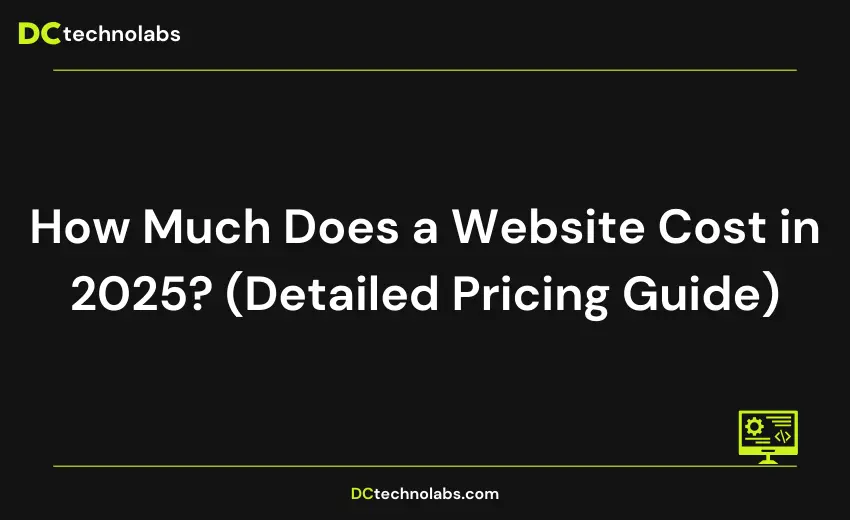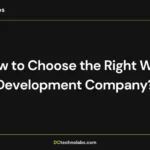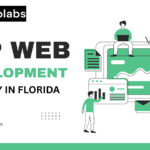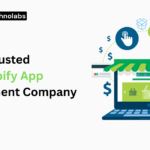
If you’re planning to build a website in 2025, one of the first questions you’ll ask is, “How much does a website cost in 2025?” The answer? It depends on a lot of things — like the size of your website, the features you need, and whether you hire a professional or do it yourself. For example, a simple 5-page website will cost far less than a large eCommerce site with custom features. But whether you’re a small business owner, a freelancer, or someone looking for affordable web design services, knowing what to expect can help you plan your budget better.
Website pricing can vary depending on your location and needs. In places like South Africa, prices for monthly website packages may be lower compared to other regions. But beyond location, the type of website you need also makes a big difference. For example, businesses looking for a responsive website design in Charlotte will pay more for mobile-friendly features. And if you already have a website, you might want to explore the cost of a website redesign to keep your site updated and user-friendly.
In this guide, we’ll break down the different factors that affect website costs — from basic setups to custom designs. You’ll learn how much a small business site might cost, what you can expect to pay for an eCommerce store, and how to use tools like an eCommerce website cost calculator to estimate your expenses. Whether you’re starting from scratch or upgrading an existing site, this guide will help you understand where your money goes and how to get the best value for your investment.
Let’s dive in and find out exactly what goes into website pricing in 2025!
Table of Contents
- Website Cost Breakdown: Key Factors That Impact Pricing
- How Much Does a Small Business Website Cost in 2025?
- How Much Does It Cost to Build an eCommerce Website?
- DIY vs. Should You Hire a Professional? Find Out What’s Right for You
- Recurring Costs: What You Need to Keep Your Website Running
- Cost-Saving Tips for Building a Website
- FAQs About Website Costs in 2025
- Conclusion: Final Thoughts on Website Costs in 2025
Website Cost Breakdown: Key Factors That Impact Pricing
When you ask how much does a website cost in 2025, you’ll quickly realize that the answer depends on several factors. These include your website’s size, features, hosting type, and the level of customization you need. Let’s break down each key factor to help you get a clearer picture of website pricing.
A. Domain Name Costs ($10 – $15/year)
The first thing you need to launch a website is a domain name. This is the unique web address users type into their browsers to find your site, like www.yourbusiness.com. In simple terms, it’s your website’s identity on the internet.
Domain names are typically affordable, ranging from $10 to $15 per year for basic options. However, if you want a premium domain name that includes popular keywords, the price can be much higher. Domains can be purchased from providers like GoDaddy, Namecheap, and Bluehost.
Quick Tip: Choose a .com domain if possible. It’s the most recognized and trusted extension for websites.
B. Website Hosting Costs ($50 – $500/year)
After you’ve secured a domain name, you need a place to store your website files. This service is called web hosting. Hosting providers ensure that your website is always online and accessible to visitors.
Let’s explore some of the popular web hosting options available:
- Shared Hosting: This is the most budget-friendly option, typically costing around $50 to $100 per year. It’s suitable for smaller websites that don’t experience heavy traffic. Shared hosting means your website uses the same server as other websites, splitting resources like storage and bandwidth.
- Managed Hosting: This type of hosting costs more, starting at around $200 per year, but it includes additional services like regular updates, backups, and enhanced security. Managed hosting is a great choice for businesses that want less hassle with technical maintenance.
- Dedicated Hosting: Dedicated hosting is the priciest choice, usually starting at more than $500 annually, as it provides an entire server solely for your website. With dedicated hosting, your website gets its own server, which is ideal for large businesses or websites with a lot of traffic.
For businesses in South Africa or Charlotte seeking a responsive website design, investing in reliable hosting is crucial to ensure fast loading times and secure access for visitors.
C. SSL Certificate Costs ($0 – $200/year)
An SSL (Secure Sockets Layer) certificate is a tool that encrypts the connection between your website and its visitors. This ensures that any information shared, like passwords or payment details, is secure from hackers.
Some hosting providers offer free SSL certificates, while others charge between $50 and $200 per year for more advanced SSL options. If you’re running an online store, an SSL certificate is a must-have to protect customer information.
Why SSL Certificates Matter:
- They build trust by showing a padlock icon in the browser.
- They protect sensitive information shared on your site.
- They improve your website’s ranking on Google.
D. Website Design Costs ($500 – $15,000)
The way your website looks and functions is one of the biggest factors in determining its cost. Website design includes everything from choosing the layout to customizing how pages interact with visitors.
There are two main ways to approach website design:
1. DIY (Do-It-Yourself) Website Design
If you’re comfortable using website builders like WordPress, Wix, or Squarespace, you can design your own website. These tools provide ready-to-use templates that can be easily adjusted to fit your style, even if you have no coding experience. The cost for a DIY website ranges from $500 to $3,000, depending on the tools and themes you choose.
2. Hiring a Professional Designer
If you want a unique and polished look for your website, hiring a professional designer is a good option. A designer can create a custom layout tailored to your brand and specific needs. This option is more expensive, ranging from $2,000 to $15,000, but it can give your website a more professional and engaging appearance.
For businesses looking for an affordable web design service or planning a cost of website redesign, working with a professional can ensure your website stands out and functions smoothly across different devices.
How Much Does a Small Business Website Cost in 2025?
Small business websites are usually straightforward, with a few key pages to showcase products or services, provide contact information, and explain the company’s mission. Here’s a breakdown of the typical costs for a 5-page website price:
| Feature | Cost Range |
| Domain Name | $10 – $15/year |
| Hosting | $50 – $200/year |
| SSL Certificate | $0 – $200/year |
| Design & Development | $1,000 – $5,000 |
| Maintenance | $500 – $2,000/year |
The total cost for a small business website can range from $1,500 to $7,500. Businesses looking for monthly website packages can opt for maintenance plans that cover updates, backups, and security checks.
For small businesses in South Africa or Charlotte, finding a reliable responsive website design is essential to provide users with a seamless experience across devices.
How Much Does It Cost to Build an eCommerce Website?
Creating an eCommerce website is a more complex process because it requires additional features like payment gateways, product pages, and inventory management tools. Let’s break down the typical costs for an eCommerce site.
Typical Costs for an eCommerce Website:
| Feature | Cost Range |
| Domain and Hosting | $100 – $500/year |
| SSL Certificate | $50 – $200/year |
| Design & Development | $5,000 – $30,000 |
| Payment Gateway Fees | 2% – 3% per transaction |
| Plugins & Add-ons | $500 – $2,000/year |
Why Do eCommerce Websites Cost More?
- Payment Processing: eCommerce sites need secure payment gateways like PayPal or Stripe to handle transactions.
- Product Pages: Each product page needs to be optimized with images, descriptions, and pricing.
- Inventory Management: Tools are required to track stock levels, process orders, and manage shipping.
If you’re planning to build an online store, using an ecommerce website cost calculator can help estimate your expenses. These tools provide a quick way to see how features like shipping integrations, promotional tools, and customer accounts affect your budget.
Tip: Start with a simple eCommerce setup and add more advanced features as your business grows to manage costs effectively.
DIY vs. Should You Hire a Professional? Find Out What’s Right for You
When considering how much does a website cost in 2025, one key factor is whether you decide to build the website yourself or hire a professional. Both options have their pros and cons, and the right choice depends on your budget, time, and technical skills.
Option 1: DIY (Do-It-Yourself) Website
If you’re looking for an affordable web design service, creating a website on your own can save you a lot of money. Platforms like WordPress, Wix, and Squarespace provide pre-designed templates that are easy to customize without needing coding knowledge.
Pros of DIY Websites:
- Lower Costs: DIY website builders usually charge a monthly fee, making them a great option for businesses on a budget.
- Quick Setup: You can launch your website faster using pre-built templates and drag-and-drop tools.
- Full Control: You can make updates and changes whenever you want without waiting for a designer.
Cons of DIY Websites:
- Limited Customization: While you can adjust templates, you might struggle to achieve a completely unique design.
- Time-Consuming: If you’re new to website building, it might take longer to figure out how to use these tools.
- Basic Functionality: Advanced features like eCommerce integrations or responsive design might require additional plugins.
Option 2: Hiring a Professional Designer
If you want a unique, custom-built website that perfectly matches your brand, hiring a professional designer is a better choice. This option is ideal for businesses looking for a cost of website redesign or creating a more complex site, like an eCommerce store.
Pros of Hiring a Professional:
- Custom Design: A designer can create a website tailored to your specific needs and brand identity.
- Advanced Features: You can get features like responsive website design Charlotte, faster loading times, and secure payment gateways.
- Ongoing Support: Many professionals offer maintenance packages to keep your site updated.
Cons of Hiring a Professional:
- Higher Costs: Professional web design services typically cost more upfront, especially for custom projects.
- Longer Timelines: Custom websites can take weeks or months to complete.
Recurring Costs: What You Need to Keep Your Website Running
Building a website is not a one-time expense. You need to consider the recurring costs that keep your website running smoothly. These ongoing costs include hosting, security, maintenance, and marketing.
A. Hosting Costs
After launching your website, you’ll need to pay for web hosting services to keep it online. Hosting fees are usually billed annually or through monthly website packages.
| Hosting Type | Average Cost |
| Shared Hosting | $50 – $200/year |
| Managed Hosting | $200 – $500/year |
| Dedicated Hosting | $500+/year |
B. Maintenance Costs
Website maintenance involves regular updates, backups, and security checks to ensure your site runs without issues. Maintenance packages can range from $50 to $300 per month, depending on your website’s complexity.
Tasks included in maintenance:
- Updating plugins and software
- Backing up website files
- Fixing broken links and errors
- Improving website speed and performance
For businesses in South Africa seeking affordable web design services, investing in maintenance packages can save you from unexpected issues down the line.
C. Marketing Costs
To make your website visible to potential customers, you’ll need to invest in marketing strategies like SEO, PPC, and social media marketing. These costs can range from $500 to $10,000 per month, depending on your goals.
Marketing services to consider:
- Search Engine Optimization (SEO)
- Pay-Per-Click Advertising (PPC)
- Content Marketing
- Social Media Advertising
Cost-Saving Tips for Building a Website
Building a website can be affordable if you plan your expenses wisely. Here are some tips to help you reduce website costs while still getting a high-quality site:
Tip 1: Start Small and Upgrade Later
If you’re just starting out, consider building a basic website and upgrading as your business grows. For example, start with a 5-page website price package and add more features later.
Tip 2: Use Free or Low-Cost Tools
There are many free or low-cost tools available to help you build and maintain your website. WordPress, for instance, offers a wide range of free themes and plugins to enhance your site.
Tip 3: Compare Hosting Providers
Shop around for hosting providers to find the best deal. Some providers offer discounts for first-time customers or annual subscriptions.
Tip 4: Manage Your Content In-House
You can save money by writing your website content on your own rather than hiring someone. This can save you hundreds of dollars in copywriting fees.
Tip 5: Choose a Website Builder
If you’re on a tight budget, use a website builder like Wix or Squarespace. These platforms offer affordable packages that include hosting, SSL certificates, and templates.
FAQs About Website Costs in 2025
Here are some common questions about how much does a website cost in 2025 to help you plan your budget.
Q1: How much does a basic website cost in 2025?
A basic website can cost between $500 and $5,000, depending on whether you use a DIY platform or hire a professional.
Q2: How much does an eCommerce website cost?
An eCommerce website typically costs between $5,000 and $30,000. Use an ecommerce website cost calculator to estimate your expenses based on your business needs.
Q3: What is the yearly cost to keep a website running?
The typical annual maintenance fee for a website is between $500 and $2,000, depending on its complexity. These costs cover updates, backups, and security measures to keep your site running smoothly.
Q4: What is the cost of website redesign?
The cost of website redesign varies depending on the changes you want to make. Basic redesigns can cost $1,000 to $5,000, while more extensive updates may cost over $10,000.
Q5: Is it better to hire a professional or do it yourself?
If you have the time and technical skills, a DIY website can save you money. However, for a unique and custom look, hiring a professional is often worth the investment.
Conclusion: Final Thoughts on Website Costs in 2025
In 2025, the cost of building and maintaining a website can vary greatly based on your specific needs. Whether you choose a DIY approach or hire a professional, understanding the different costs involved—like hosting, maintenance, design, and eCommerce features—can help you plan your budget wisely.
If you’re a small business owner looking for affordable web design services, consider starting with a basic package and scaling up as your business grows. For those needing a more complex site, like an eCommerce platform, it’s essential to invest in reliable tools and professional support to ensure your website performs well and provides a great user experience.
To make informed decisions, use resources like our eCommerce website cost calculator or explore our website maintenance packages. These tools will help you estimate the total cost and choose a plan that fits your budget.
Remember, a well-built website is not just a cost—it’s an investment that can help you grow your business and reach more customers online.
If you found this blog helpful, check some of the other blogs below:
- Steps to Generate Organic Visits for Google Business Profile in 2024
- How to Choose the Right Web Development Company?
For more tips and updates, follow us on our social media platforms: Instagram, Facebook, LinkedIn, and Twitter.






